Websites come in all shapes and sizes, each serving a unique purpose and catering to a specific audience. From simple landing pages to complex e-commerce platforms, the possibilities are almost endless.
But with so many options, it can be overwhelming to know where to start when building your own online presence.
This blog post is your guide to the diverse world of websites.
We'll explore seven popular types of websites, highlighting their key features, functionalities, and real-world examples to inspire your own online endeavors.
Whether you're an ambitious entrepreneur, a creative professional, or a passionate blogger, you'll discover the perfect website type to bring your vision to life.
Think of this as your website inspiration board, filled with captivating examples and practical insights.
1 - Business Websites
Think of your website as your digital storefront, open 24/7, welcoming visitors from around the globe. It's your chance to make a killer first impression, showcase your brand's unique personality, and tell your story in a way that captivates your audience.
While business websites come in all shapes and sizes, they all share a common goal: to connect with potential customers, clients, and partners.
Whether you're selling products, offering services, or simply sharing your expertise, your website is your online hub for building relationships and driving conversions.
From sleek one-pagers to content-rich multi-page experiences, the possibilities are endless. The key is to find the perfect balance between showcasing your offerings and providing valuable information that resonates with your target audience.
Let’s take Headspace as an example. Headspace is a website dedicated to improving mental health and well-being through guided meditation, mindfulness techniques, and sleep exercises.
Its user-friendly design, calming color palette, and clear navigation make it easy for users to find the resources they need. The site effectively uses visuals and animations to engage visitors and create a sense of tranquility. For tips on creating an inviting website experience, see our article on how to make a website look cozy.
Headspace's well-organized content and accessible language cater to users of all levels, from beginners to experienced meditators. B2B brands also need to nail clarity and trust; check out our best B2B websites roundup to see how top companies get it right for business audiences.
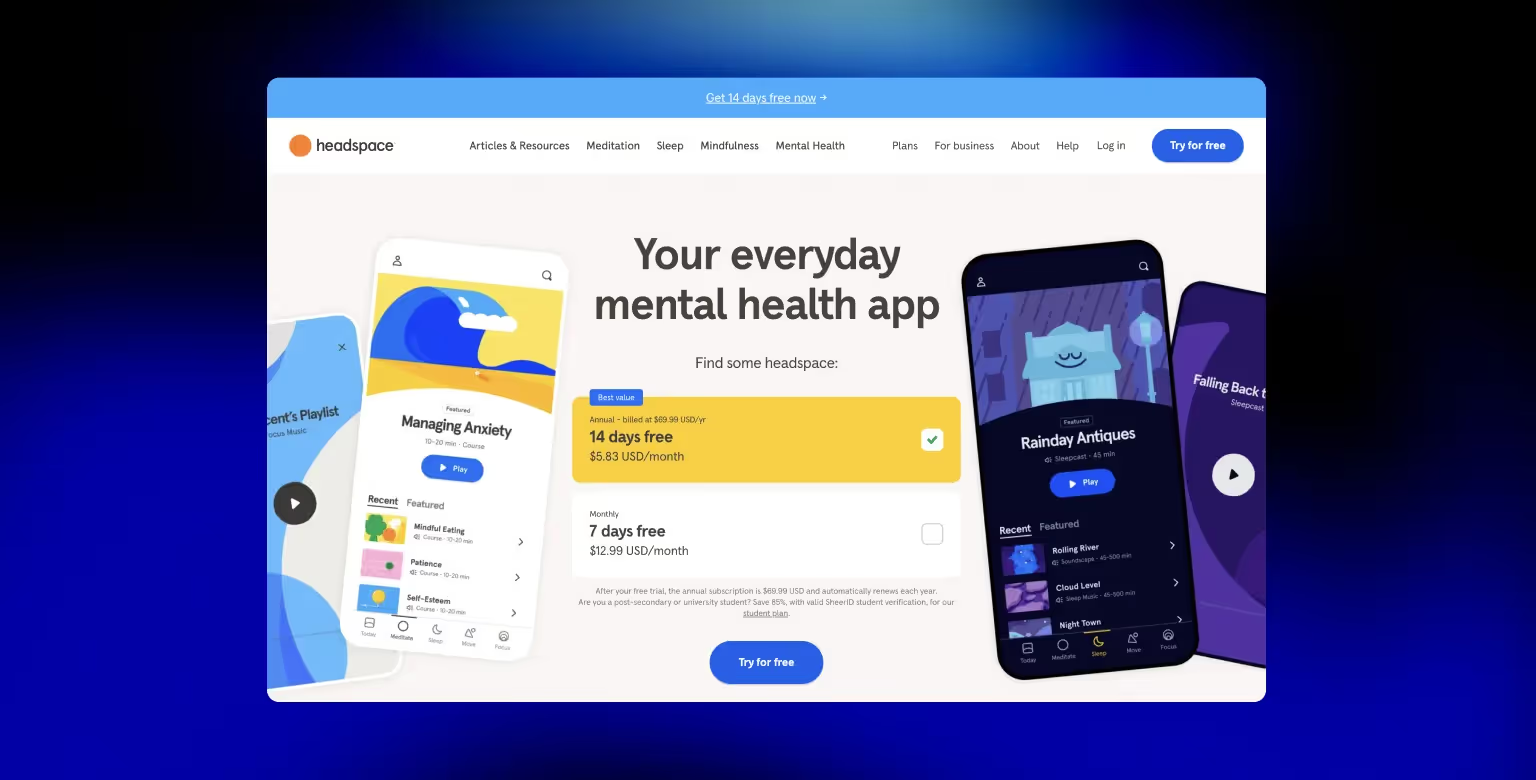
2 - E-commerce Websites
Imagine a digital storefront where the doors never close, and the shelves are always stocked with enticing products. That's the power of an e-commerce website.
Whether you're selling physical goods like handcrafted jewelry or digital downloads like online courses, your e-commerce site is your virtual marketplace, open 24/7 to customers worldwide.
These websites are designed to showcase your products in their best light, with captivating visuals, detailed descriptions, and user-friendly navigation that makes browsing and purchasing a breeze. For e-commerce sites with extensive product categories, using a mega menu can help customers quickly find what they need. Take a look at these Mega Menu Examples to see this in action.
Customers can explore your offerings, add items to their virtual shopping carts, and seamlessly complete their purchases with secure payment gateways.
While it is more often than not a website type by itself, e-commerce is often just one of the many features of other website types such as business websites or blogs, to offer merchandise or digital products alongside other content.
The beauty of e-commerce platforms lies in their versatility. From established brands to niche creators, businesses of all sizes can leverage e-commerce to reach their target audience and drive sales.
Let’s take a look at Ledger’s website. Ledger’s website showcases their crypto wallets with a clean design and high-quality visuals, emphasizing security and ease of use.
It provides comprehensive information, customer testimonials, and easy navigation to guide users towards a purchase.
In essence, e-commerce websites are the engines of online retail, empowering businesses to connect with customers, showcase their products, and thrive in the expanding digital marketplace.
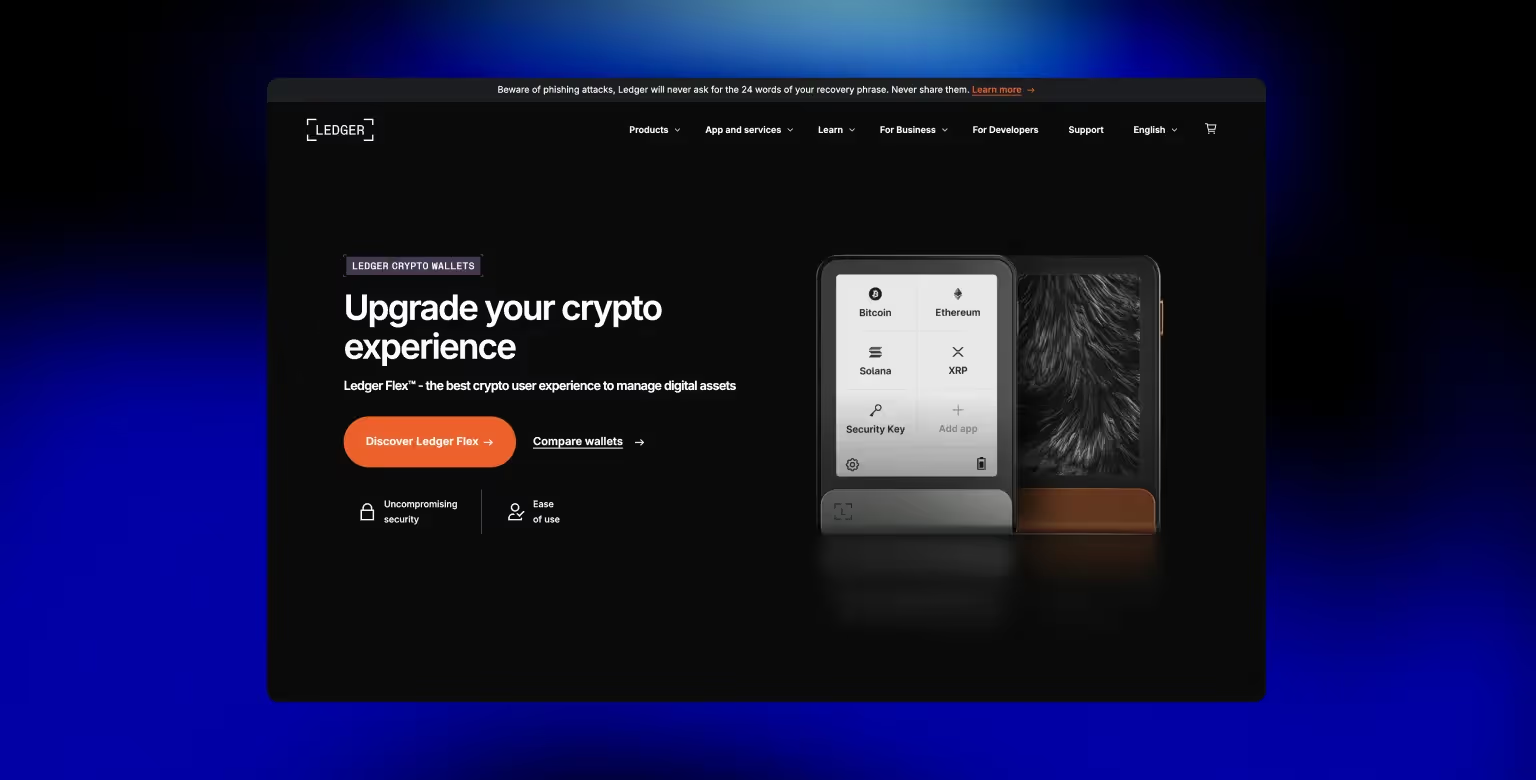
3 - Informational Websites
Informational websites serve as knowledge hubs, providing in-depth content that empowers users to explore specific topics, services, or products.
Informational websites can position individuals or organizations as industry authorities, leveraging mass communication and knowledge sharing to establish expertise and build credibility.
A sub-type we can use for this occasion is a blog. Blog websites, as a subtype of informational websites, provide insights and perspectives on specific topics through regular posts and articles, often incorporating a personal or conversational tone.
Unlike more static informational sites, blogs emphasize ongoing content updates and engagement with readers through comments and discussions.
Take TechChrunch, for example.
TechCrunch effectively utilizes a clean layout with clear headlines and visuals to draw readers into its technology-focused content. The site prominently features a variety of recent articles, indicating frequent updates and a commitment to providing fresh perspectives on the latest tech news.
With clear categorization by topics like Startups, Venture, and AI, TechCrunch allows for easy navigation and exploration of specific areas of interest.
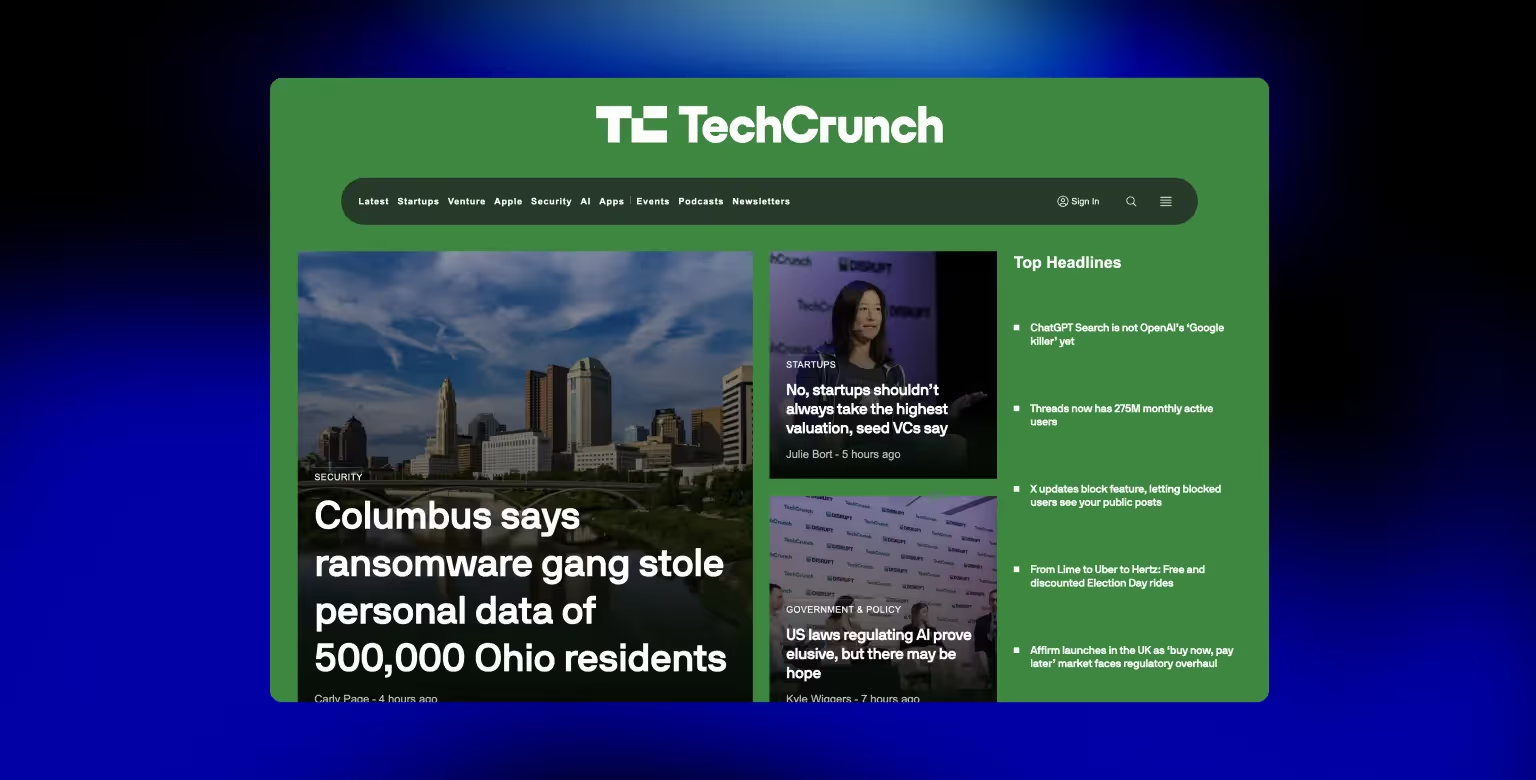
4 - Personal Websites
A personal website is your digital sanctuary – a space to express your authentic self, explore your passions, and connect with the world on a more personal level.
Think of it as your online haven, where you can share your journey, your thoughts, and your unique perspective.
Whether you're an up-and-coming artist, a passionate writer, or simply someone who wants to carve out their own corner of the internet, a personal website offers endless possibilities.
What you choose to include is entirely up to you. Want to showcase your accomplishments and advance your career? Feature your resume, highlight your skills, and share testimonials from colleagues.
More interested in self-expression and creative exploration? Create a blog, share your photography, or connect with your audience through social media.
Take Laura Baross, for example. This New York City-based visual artist uses her personal website to share her passion for sustainable living and zero-waste design.
Her site is a beautiful blend of personal expression and professional showcase, featuring her artwork, photography, and blog posts that delve into her creative process and eco-conscious lifestyle.
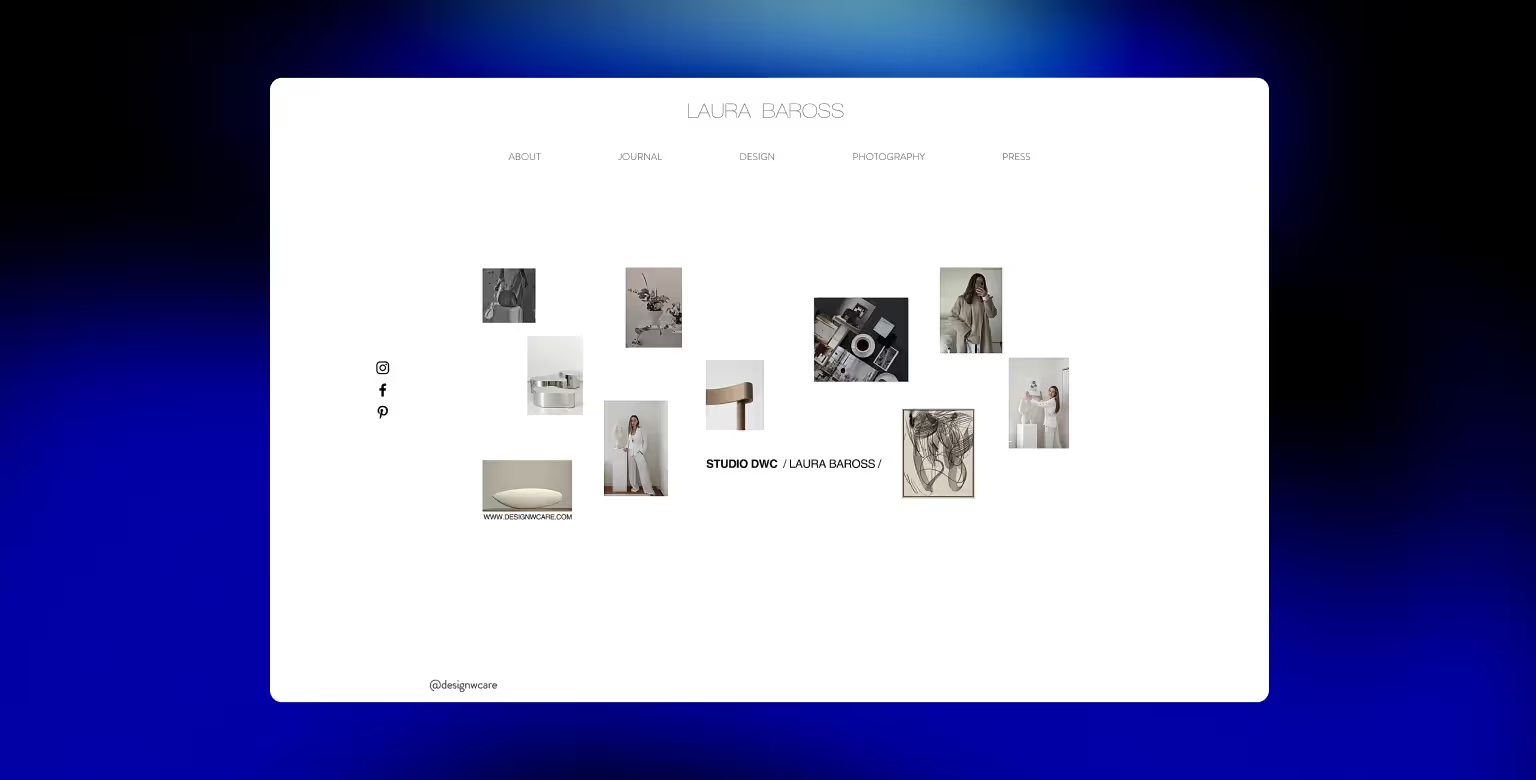
5 - Membership Websites
Imagine stepping into an exclusive online club, where valuable content and a vibrant community await those who hold the key.
That's the allure of a membership website. From educational platforms offering specialized courses to online communities buzzing with exclusive discussions, membership websites create a sense of belonging and provide premium experiences for their members.
These websites operate on a tiered access model, where some or all content is reserved for registered users. This could involve a one-time payment, a recurring subscription, or even a simple sign-up process.
By offering exclusive content and fostering a sense of community, membership websites cultivate loyal followings and generate recurring revenue.
Founderpass, a website done with Webflow and Memberstack, uses a clean and modern design with strong calls to action, guiding visitors toward choosing a membership plan. For more interactive membership site ideas, see our Wized website examples built on Webflow, which illustrate how to integrate dynamic content and user logic into sites.
By emphasizing the potential cost savings on essential business tools, FounderPass creates a compelling case for membership.
Membership websites are incredibly versatile. They can be used to build online courses, create exclusive communities, offer premium content, or even provide access to specialized software or web applications.
The key is to provide value that resonates with your target audience and incentivizes them to join your exclusive online club.
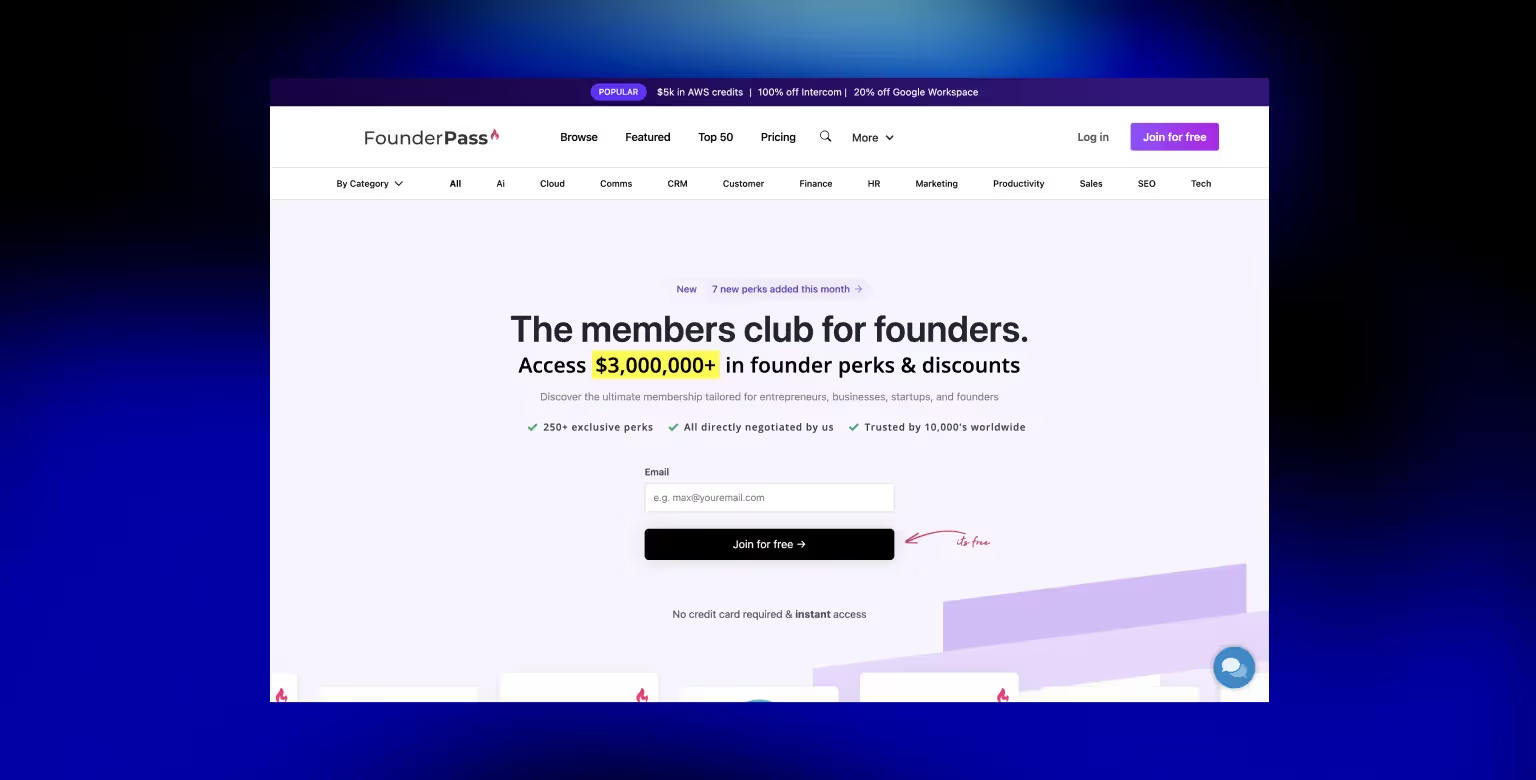
6 - Portfolio Websites
A portfolio website is a dedicated online space for showcasing creative work and professional expertise to captivate audiences and attract potential clients.
Whether you're a painter, a photographer, a graphic designer, or a wordsmith, a portfolio website is your online gallery, where your masterpieces take center stage.
Think of it as your curated exhibition, where you can handpick your best work, present it in a visually stunning format, and let your talent shine.
From captivating visuals to compelling case studies, your portfolio website tells your creative story and demonstrates your expertise in a way that words alone simply cannot capture.
But portfolios aren't just for artists and designers. Developers can showcase their coding prowess, marketers can highlight their successful campaigns, and writers can curate their most compelling articles.
It's a great platform for professionals across industries to demonstrate their skills and attract potential clients or employers.
Take France-based freelance designer Julie Guzal, for example. Her portfolio website is a masterpiece of minimalist design, with a unique layout and subtle interactive elements that draw you in and keep you engaged. It's a testament to how effective design can elevate your portfolio and leave a lasting impression.

7 - Forum Websites
Imagine a place where passionate individuals gather to discuss their interests, share their knowledge, and connect with like-minded souls. That's the essence of a forum website – a digital hub for vibrant discussions and community building.
These online spaces provide a platform for users to engage in conversations, ask questions, and share insights on a wide range of topics. From niche hobbies to professional interests, forums foster a sense of belonging and create a thriving ecosystem of knowledge sharing.
While some forums exist as standalone websites, they can also be powerful additions to existing sites. Imagine an educational platform with a dedicated forum where students can connect, discuss course material, and help each other succeed.
Or picture a SaaS company leveraging a forum as a dynamic support resource, where users can troubleshoot issues, share tips, and build a strong community around their product.
Duolingo, the popular language learning app, exemplifies this approach with its vibrant community forum, where users from around the world connect, share their learning experiences, and support each other on their language journey.
Forums are invaluable tools for fostering engagement, building community, and creating a sense of belonging around shared interests. They transform passive audiences into active participants, encouraging collaboration, knowledge sharing, and a deeper connection with your brand or platform.
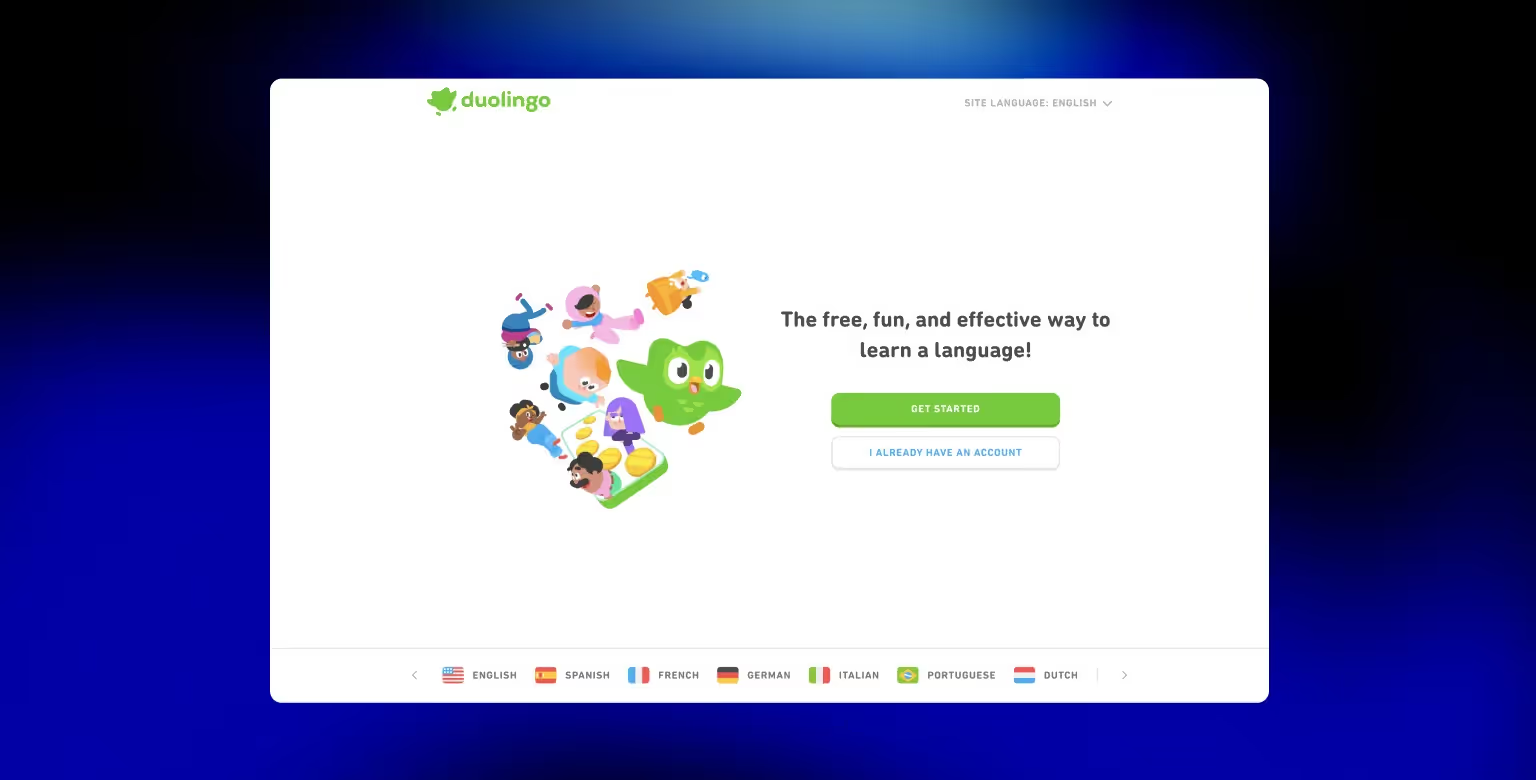
Final Words
Remember, your website is more than just an online address. It's your voice, your storefront, and your connection to the world. Whether you're an entrepreneur, a seasoned business owner, or a passionate individual with a story to tell, there's a website type perfectly suited to your needs.
If you're looking to build a beautiful website that does the job right, check out AI website examples for inspiration.
With that said, building a website that truly supports your business goals requires more than just creativity; it demands a strategic approach to design and development. If you're looking for a B2B web design agency that understands how to balance captivating visuals with functionality and performance, Tilipman Digital is here to help.
Our team specializes in crafting websites that not only engage but also convert—empowering businesses to stand out and succeed in competitive markets.
Contact Tilipman Digital today for a free consultation, and let’s bring your digital vision to life.


